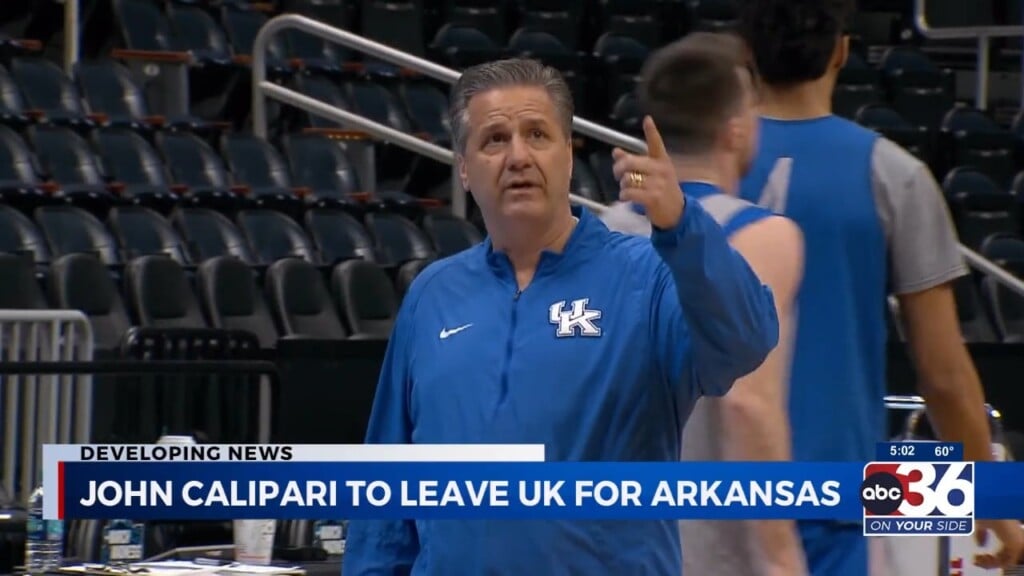Webb Companies releases CentrePointe statement
STATEMENT TO THE PUBLIC
March 2, 2016
R. Dudley Webb
Chairman
STATUS OF THE CENTREPOINTE PROJECT
For the last several months, the owners of the Centrepointe Project have patiently remained silent while
speculation about the project became almost every day fodder in the press and social media. Much of
the information disseminated in both was inaccurate and the events leading up to the now abandoned
efforts by the Collins Investment Group were mischaracterized. We chose not to weigh in on the debate
because we wanted to give that group the opportunity to work with the City to see if an alternative to our
approved project was possible. Unfortunately, that possibility did not occur. We have, therefore, decided
to continue to move the project forward ourselves. We have resumed construction of the multi‐level
underground parking structure that underpins the entire project and provides parking the City desperately
needs to foster further development and redevelopment in the City’s business core. Our contractors and
are now on the site performing construction work toward completing the Parking Garage.
This site is still privately owned and it is not for sale. The site will not be returned to a fenced paddock. It
will not have a park or an amphitheater that will neither create jobs nor generate taxes for the City of
Lexington. We intend to move forward with our original plan of the multi‐use project that we previously
presented, modified at the City’s request, and which the City approved. The premise behind the
Centrepointe Project has always been one of in‐fill and redevelopment, to promote downtown density,
and reduce additional suburban sprawl in an effort to preserve Bluegrass green space. We feel confident
that most Lexingtonians would agree with this ideal for our City. Hopefully, after some enlightenment,
they will also appreciate how difficult it has been for private investors to implement such a plan downtown
when the rules keep changing. This is largely why no major private projects have been undertaken in
downtown Lexington since the mid‐1980s, when The Webb Companies developed the Radisson, now
Hilton Hotel, the Vine Center, the Financial Center, Victorian Square (twice), West Main Place, the Your
Community Bank, Community Trust and Kentucky Bank Buildings, the Commerce Lexington Headquarters
and the Woodlands.
The cornerstone of the Collins proposal involved construction of a new City Hall that would have been
leased to the City. While the idea of a new City Hall on the site certainly has merit, it became obvious that
delaying our project to try to negotiate an acceptable arrangement with the City without a consensus
would only further test the patience of the public. This is especially true given the fact that the current
project has already received all of the approvals necessary to move forward. We believe the principal
reason the Collins proposal did not gain traction was the fact that the City wanted to own its building
rather than lease, although we were not part of those now ended negotiations. No one from the City has
ever approached us about the City being part of this Project or a partner in a development that would
include a City Hall owned by the City. Instead, we merely received threats from the City’s third‐party
attorney, typically after they had already been delivered to the press or our contractors.
While the idea of a City Hall might have had merit, it also contained potential pitfalls with respect to
meeting the economic goals mandated by the existing Tax Increment Financing approved for the Project.
The benchmark for a TIF project is creation of new jobs and tax revenues in the TIF district. We are
concerned that merely relocating city employees to the site will not accomplish that goal. It will not create
new jobs, as the new regional office of Stantec, several Lexington law firms, a new Jeff Ruby’s and a
financial institution would have. Certainly a building or garage owned at its completion by the City will
not. Instead, that will decrease the tax base in the TIF district. However, we still remain open to direct
discussions with the Mayor and the Council, unimpeded by self‐described, unelected gatekeepers who
appear to be more interested in issuing edicts and press releases, and preventing the administration and
the Council from hearing unfiltered information on the project.
The bottom line is that we remain open to working closely and directly with Mayor Gray and the LFUCG
Council in continuing to develop this private property into a robust and dynamic element of our city center
and would welcome a new and more cooperative approach by the City that would facilitate completion
of the garage this City so badly needs. We are talking about a project that will rival the one now underway
in Louisville, one that will generate significant revenue and over 1,200 new jobs for our downtown.
We can all see what resulted from cooperative efforts and open discussions in Louisville – a willingness to
work together that has brought many projects to its downtown. The Omni Convention Hotel and the YUM
Center serve as two of many examples of what can be accomplished when cooperation between the
public and private sectors occurs.
Like Lexington, downtown Louisville did not have enough parking to sustain a major project. That City
and private developers worked closely together to create a new development that would add parking,
tourism and vibrancy to their downtown. According to WKYT‐TV, Louisville ended up gifting the developer
a full City block valued at $17 million dollars; a new 820 car Parking Garage; and along with the State,
another $139 million in tax rebate money. Were such inducements justified? Absolutely, because both
of these projects will be transformative for their downtowns and generate tourism, create thousands of
new jobs and pay huge amounts of taxes. Like with that project, Centrepointe has a TIF already in place
that is viable, approved and already activated according to the City’s TIF counsel as well as the TIF
consultants who have worked on both projects.
The difference between Louisville and Lexington, however, is that when we were ready to proceed with
the construction of our project in May of 2014, our development counsel, Darby Turner, asked the LFUCG
to comply with the signed TIF agreement and to approve the issuance of our bonds so that we could
proceed with construction of the Garage in accordance with the TIF Agreement that we had executed with
the City and the Commonwealth in 2008. When the City refused to do so, Darby repeatedly reminded the
City and its outside counsel that we had a written agreement with the City and the Commonwealth that
the City would issue those bonds, but not guarantee them. It was then pointedly explained that it was
critical that the City live up to that legal obligation right away. This demand was simultaneously forwarded
to Larry Hayes, then Secretary of the Kentucky Economic Development Cabinet, which was also a signatory
to the 2008 Agreement. Secretary Hayes promptly wrote to the City officials reminding them of the City’s
obligation to do so. The City nevertheless refused to honor its obligation to issue the bonds, evidently in
reliance on the advice of that same third party special counsel. Had it done so, we would now be looking
at a completed garage that we were then ready to start and the other elements of the project would be
underway.
Because of this unfortunate “about face” breach by the City at that critical moment, the project was stalled
while our consultants looked for a new party to issue the TIF bonds. That effort proved to be untimely in
that as a direct result of the City’s failure to comply with its agreement to issue the bonds and the delay
caused by that failure, we were officially notified shortly thereafter that the two major anchor tenant
prospects that would have occupied most of our office building could no longer wait for the issuance of
the bonds and that they were making other arrangements to meet their space needs. In fact, one of those
prospects advised us in its notice that they sent to us that “The protracted delays in getting any firm
answer from LFUCG about your bonds – the entire blame for which I place on LFUCG’s shoulders ‐ left
us no choice but to take the safer course”.
Centrepointe Vertical, LLC
These withdrawals proved to be a major blow to the project, its other tenants and its owners, but for
some strange reason, this breach was never reported to the public by the press. The financial
repercussions of this refusal were likewise significant and still are, because we are continuing to fund the
cost of the project to keep it and its TIF alive. Needless to say, that denial may still have major
ramifications for the individuals that were responsible, but that remains to be determined.
The public is now very familiar with the “Restoration Agreement”, although it is not familiar with the
events leading up to its execution. We believe the public has a right to know of the circumstances under
which the Restoration Agreement was exacted by that same special counsel for the City. When we had
complied with all requirements necessary for the City to issue the excavation permit to which we were
entitled, our counsel, Darby Turner, was presented with the Restoration Agreement by the City’s same
special third party counsel on the eve of the issuance of that permit. Darby was told that the permit would
not be issued unless and until the Restoration Agreement was signed. Darby then reminded that same
special third party counsel that the excavation permit to which we were then entitled was desperately
needed to keep the TIF and other benefits for the project alive as well as to satisfy the timelines and
occupancy needs of our tenants. Our excavation contractor was here with his equipment likewise waiting
for the permit so it could begin the excavation of our site for the underground Parking Garage that was
called for in the Downtown Master Plan. Darby also pointed out to that special counsel that no such
request had ever before been imposed on a developer and most likely would never be imposed in the
future.
Even worse, the text of that agreement specifically refers to the fill material as being with dirt or earth
similar to that which was being removed, but at the last moment, that same special counsel inserted an
additional page at the end of the document specifying that engineered fill had to be used which could
cost the developer another $1,000,000.00. Worst of all, this document is now being waved at the press
and the public by that special counsel in order to fan the flames of public discontent with respect to the
Centrepointe Project. These additional conditions were unilaterally imposed at the very last minute when
the issuance of the excavation permit was critical. Such actions were also taken without disclosure to or
a vote by the City Council.
To further prejudice and inflame the matter, the agreement called for additional time to be added beyond
the default period “for good cause shown,” but the City’s special counsel has never recognized that the
City fouled this up by refusing to “issue” the bonds, nor has consideration been given to the 61 bad
weather days and the holidays that occurred during our active construction period. Likewise, he has never
informed the administration, the City Council, the press and the public of these extenuating circumstances
that more than justify our delays.
But more to the point – why would anyone really ever consider filling in a project that has reached the
stage at which it sits and already involves, to date, the expenditure of $28.0 million of private money?
Surely the City did not authorize a third party contract attorney purporting to serve its interests to
withhold the issuance of an excavation permit to which the applicant is entitled in order to coerce that
private property owner into signing a Restoration Agreement that it would not have otherwise signed?
And did that special counsel have the legal right to require of Centrepointe something that no other
organization or citizen in this community has ever been required to sign before or since? While our project
was being treated this way, the City appears to have given every accommodation to a neighboring andf
competing private project to induce it to happen, including tens of millions of dollars of public money.
We should all think about the ramifications of this kind of conduct by a governmental entity, not only on
us, but as to others who seek to develop downtown projects or their own property anywhere else in the
community. Will the Midland Avenue developers face the same roadblocks? Is this the kind of message
this City and its leadership want to send to the world – that Lexington is opposed to new growth?
Everyone should think carefully about the implications of this kind of treatment of proposed private
development projects in the future.
With all due respect to everyone involved, we know the evolution of this project has been frustrating for
the community, and for that we sincerely apologize. The entire project started when we were asked by
the then head of the Lexington Convention and Visitors Bureau to please develop another new hotel
downtown to meet the need for more rooms so that major conventions could be attracted to Lexington.
We agreed to do so and initially had the wholehearted encouragement and support of the then City
administration. That didn’t last long after certain self‐appointed guardians teamed with the special thirdparty
contract attorney to try to thwart the project and portray us as “bad guys”, thieves and un‐American.
After that, we had to endure five years of the great recession when no new development projects
anywhere were moving forward. And then when the money markets did finally recover in 2014 and we
could sell the bonds, the City recanted on its 2008 commitment to issue them. And during the time since,
we sacrificed another 10 months because indications were that the Collins group could bring City Hall to
the project. Believe you me, if we had known all that we do now, we would never have gotten distracted,
but that is now behind us.
The bottom line is that we have waited patiently, listened carefully, and hoped that we could get the same
cooperation and assistance that the City has given to others, but it never came. As a result, we have now
decided it is best to move forward with this project on our own, just as we originally planned, and to seek
justice later. We all love this City, want it to be the best that it can be and want nothing less than an
exceptional, multi‐use project that can be enjoyed by everyone. All we are asking is for the public to know
the full truth and to receive the cooperation of the City’s leadership and the Council to help us make this
project a reality. This community deserves no less.




Leave a Reply